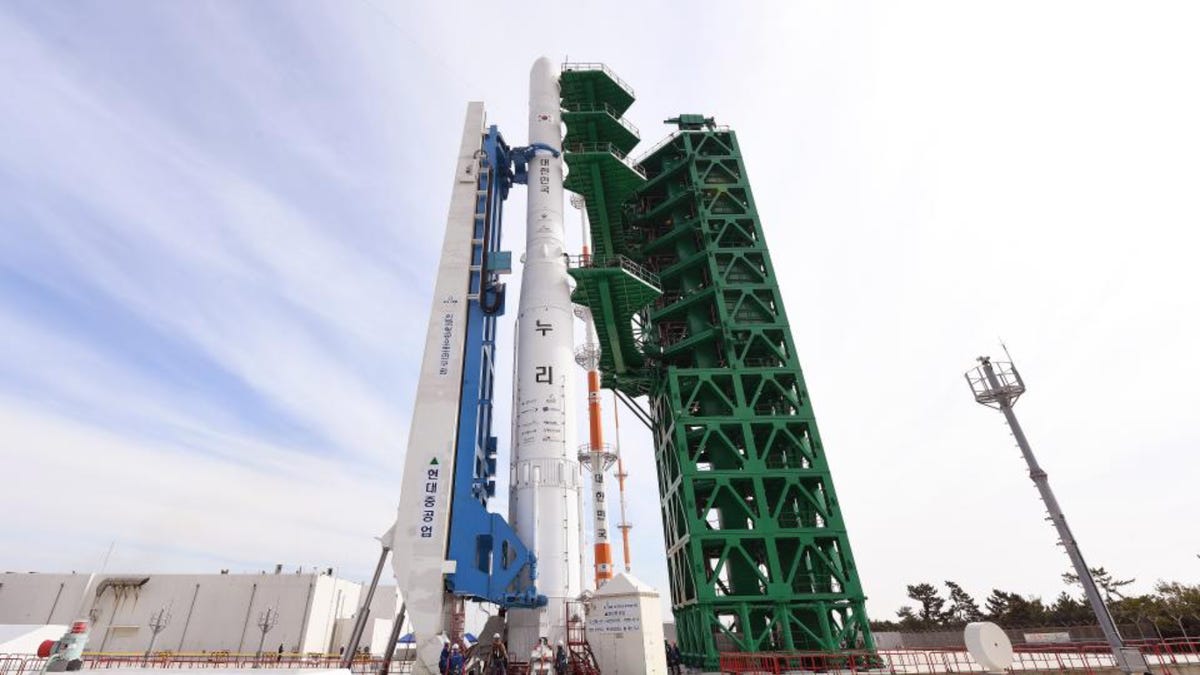South Korea's first rocket launches but fails to put dummy satellite into orbit
The rocket reached its desired altitude but fell short of getting its payload into space.

Meet Nuri, South Korea's first space rocket.
South Korea's first homegrown space rocket, dubbed Nuri, blasted off on Thursday. While the rocket reached its desired altitude, the mission failed to launch a dummy satellite into orbit.
"Unfortunately, we did not fully reach our goal," South Korean President Moon Jae-in said after watching the launch from the Naro Space Center, according to Reuters. He reportedly praised workers and said a fully successful launch will soon be possible, adding that the "Korea Space Age is approaching."
Nuri stands at 154 feet and is designed to put 1.5-ton payloads into orbit at a maximum of 500 miles above Earth. As it stands, only six other countries -- the US, France, China, Japan, India and Russia -- have domestically designed space vehicles that can carry satellites weighing more than 1 ton.
What went wrong in the launch is still being investigated, but it appears that the final stage of the rocket shut down about 40 to 50 seconds too early, officials said, according to Reuters. Those extra seconds were crucial in reaching the appropriate speed needed for the payload to reach its target orbit. Officials are investigating whether the shutoff was due to a lack of pressure in the fuel tank, control computer malfunctions or delays or whether other factors are to blame.
Even though it couldn't deploy its payload, this first test advances South Korea's efforts to join the world's space club. It moves the country closer to astronomical capabilities such as launching satellites into orbit or sending probes to the moon.

